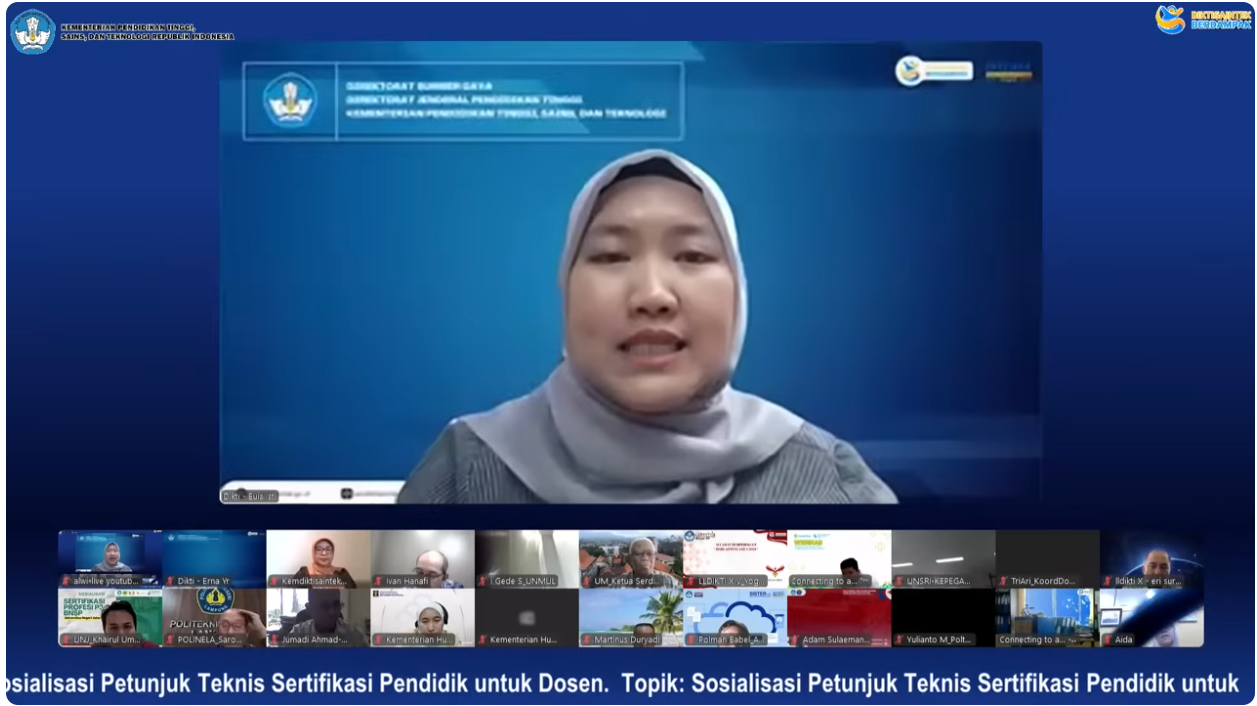The year 2025 is an important milestone in the transformation of the Educator Certification process for Lecturers in Indonesia. With the issuance of the Decree of the Director General of Higher Education Number 53/B/KPT/2025, the Serdos mechanism is now moving towards a more flexible, digitally integrated, and prioritizes the quality of the implementation of the Tridarma of Higher Education. This policy is intended to strengthen the professionalism of lecturers in responding to the challenges of higher education that increasingly demand quality and accountability.
One of the major breakthroughs is the simplification of administrative requirements. Lecturers are no longer burdened by the need to have a class or inpassing, especially for non-ASN. The assessment is now focused on academic position, track record of tridarma performance, length of service, and contribution in scientific publications.
Ease of Requirements: Orientation to Real Achievements
The new policy provides wider access by setting the main requirements as NIDN/NUPN/NUPTK ownership, a minimum academic position of Expert Assistant, and two full years of service since being appointed in a functional lecturer position. The age range for participation is also expanded: lecturers under 65 years old can still participate in the serdos process. Lecturers who are currently on study assignments can also apply, as long as they continue to report tridarma activities through SISTER BKD regularly.
Eligibility Criteria: Prioritizing Quality and Scientific Work
To be eligible, lecturers must meet a number of indicators, including:
▪ Obligation to report LKD/BKD for the last two years consistently;
Have completed PEKERTI or Applied Approach (AA) training from an authorized institution;
▪ Have at least one publication in an Accredited National Journal or reputable International Journal, or academically recognized artwork for art lecturers.
Importantly, the work must not have been published in a predatory journal. The role of first author or co-author is recognized.
Ranking System: More Proportional and Equitable
Another novelty is that the ranking system is now more transparent and considers:
▪ Level of academic position;
Last level of education;
Length of service in the functional position of lecturer;
▪ Total length of service as an educator;
▪ Special conditions, such as disability status.
This approach provides a fairer opportunity for lecturers from various backgrounds to be recognized for their contributions.
Stages of Lecturer Certification Wave I Year 2025
The certification process is designed to be systematic and time-based. The main schedule for Wave I Serdos 2025 includes:
June 10-24, 2025 : Preparation of eligible data;
June 25, 2025 : Automatic data withdrawal by the system;
June 26-July 10, 2025: Preparation of Tridarma Performance Self Statement;
July 11-25, 2025 : Proposed participants by universities;
August 1-21, 2025 : Portfolio assessment by assessors;
August 20-22, 2025: Judicium at the level of the proposing institution (PTPS);
August 26, 2025: National judicium.
All stages are carried out online through the SISTER system, which ensures integration, data validation, and document tracking in real time.
SISTER and Certification Services: New Menu for Open Access
The SISTER platform is now equipped with special features for Lecturer Certification, including:
▪ Profile and status of eligible lecturers;
LKD/BKD implementation history;
PEKERTI/AA participation status;
Upload of scientific work;
▪ Monitoring of progress from the beginning to the results of the judiciary.
These features will be available starting June 10, 2025, providing transparency and making it easier for lecturers to manage their certification process independently.
Serdos: The Beginning of Professional Recognition of Indonesian Lecturers
Lecturer certification is not just a formal administration, but a form of state recognition of competence and dedication in the academic world. With a more adaptive approach and the use of digital technology, Serdos 2025 is a vehicle for career reflection and encouragement to improve the quality of teaching, research, and community service.
Lecturers are encouraged to continue to strengthen their contribution in the tridarma and make this certification a foothold towards a higher and more impactful academic career path.
YouTube footage:
